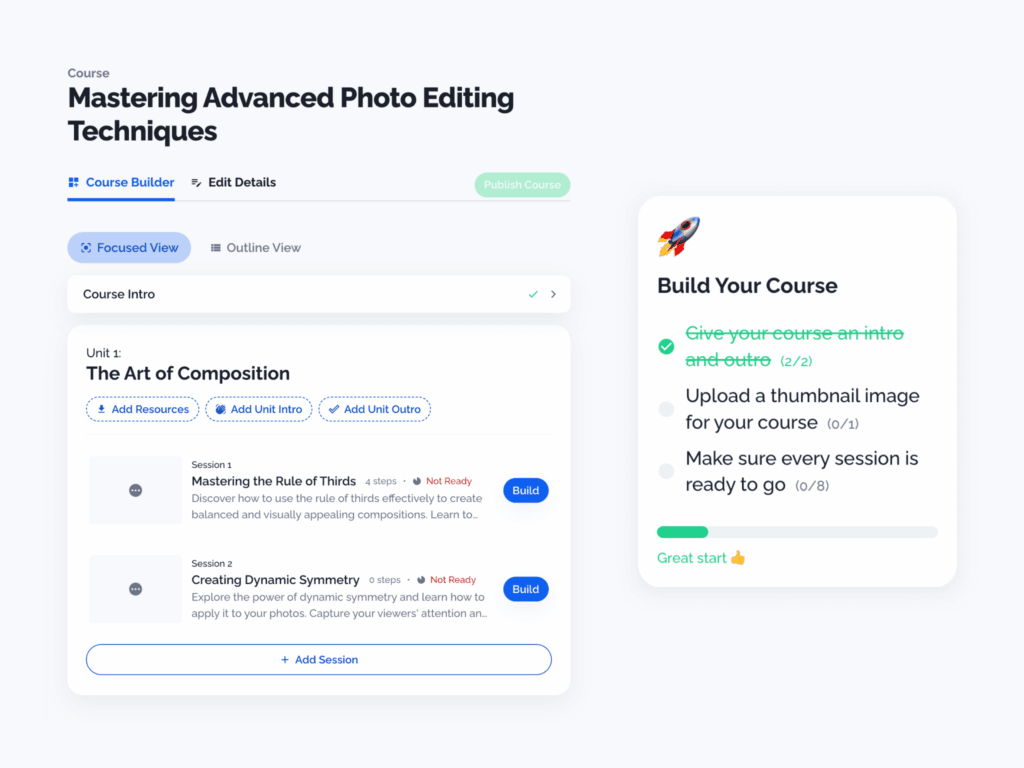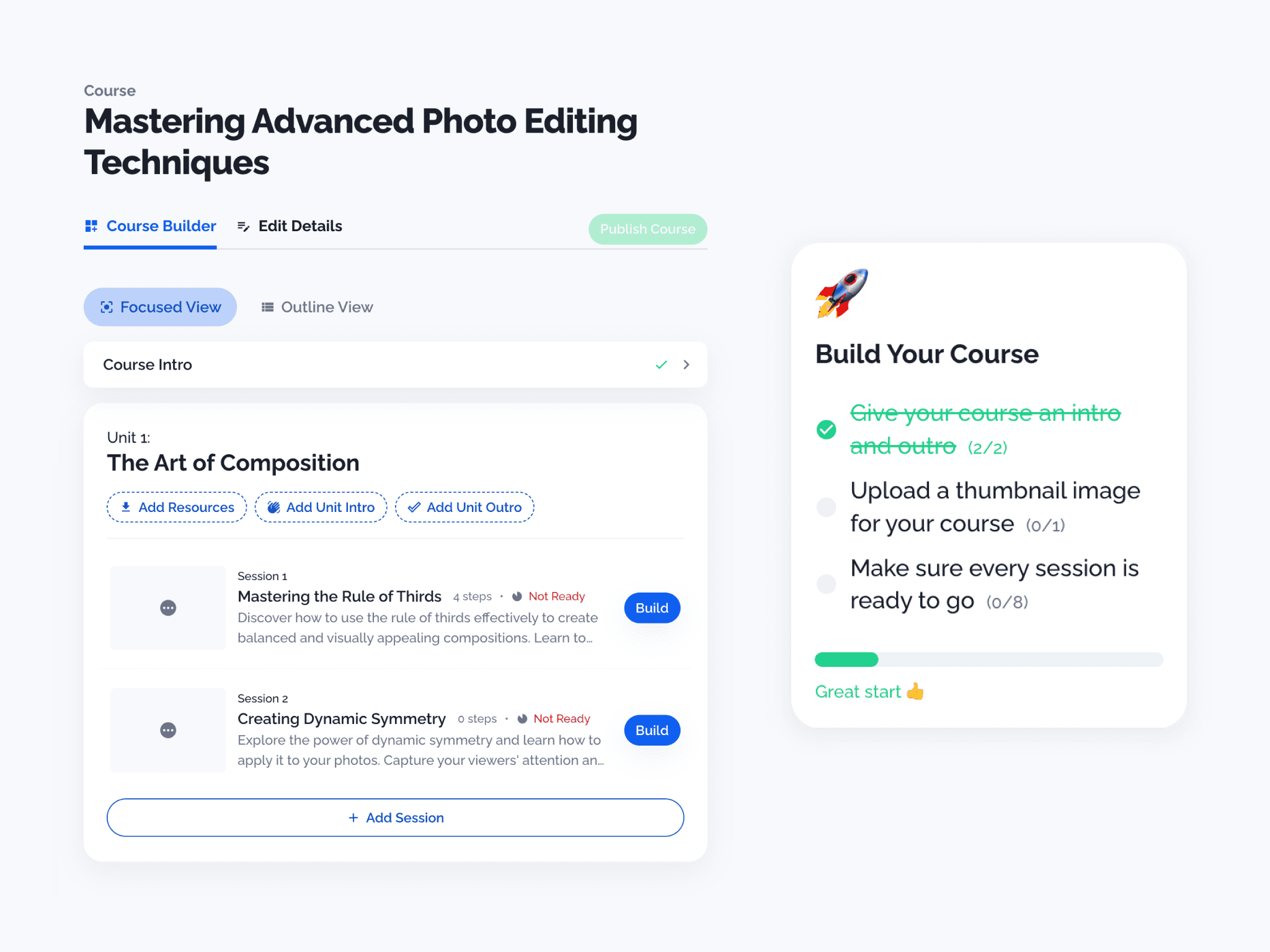
Choosing the Right Course Builder: A Rutgers University Perspective
Rutgers University, a leading public research institution, faces the ongoing challenge of providing its faculty with the best tools for creating and delivering high-quality online courses. Selecting the right course builder is crucial for ensuring an engaging and effective learning experience for students. This article explores the key considerations for Rutgers when choosing a course builder, examining factors such as ease of use, integration with existing systems, accessibility, and support for various pedagogical approaches. Understanding these aspects is paramount for empowering instructors and enhancing the overall academic environment at Rutgers.
The Importance of a Robust Course Builder at Rutgers
The demand for online and hybrid courses at Rutgers University has grown significantly in recent years. This growth necessitates a reliable and feature-rich course builder that can meet the diverse needs of its faculty and students. A well-chosen course builder can streamline the course creation process, allowing instructors to focus on content development and student engagement rather than struggling with technical complexities. Furthermore, it ensures a consistent and professional learning experience across all online courses offered by the university.
Key Features to Consider
When evaluating potential course builder options, Rutgers must consider several key features:
- Ease of Use: The course builder should have an intuitive interface that is easy for faculty members with varying levels of technical expertise to navigate. A steep learning curve can hinder adoption and increase the burden on IT support.
- Integration with Canvas: Rutgers already utilizes Canvas as its learning management system (LMS). Seamless integration with Canvas is essential to avoid data silos and ensure a smooth workflow for instructors and students.
- Accessibility: The course builder must support the creation of accessible content that complies with WCAG guidelines. This includes features such as alternative text for images, captions for videos, and keyboard navigation.
- Multimedia Support: The ability to easily embed videos, audio files, and interactive simulations is crucial for creating engaging and dynamic online courses.
- Assessment Tools: The course builder should offer a variety of assessment tools, such as quizzes, assignments, and discussion forums, to allow instructors to effectively evaluate student learning.
- Collaboration Features: Features that facilitate student collaboration, such as group projects and peer review, can enhance the learning experience and promote a sense of community in online courses.
- Reporting and Analytics: The course builder should provide robust reporting and analytics capabilities to allow instructors to track student progress and identify areas where students may be struggling.
- Mobile Compatibility: With increasing numbers of students accessing online courses on their mobile devices, the course builder should be fully responsive and provide a seamless experience on all devices.
Popular Course Builder Options for Universities Like Rutgers
Several course builder platforms are popular among universities. Each option has its strengths and weaknesses, and Rutgers should carefully evaluate each one to determine which best meets its specific needs. Some popular options include:
- Articulate 360: Articulate 360 is a suite of e-learning authoring tools that includes Storyline 360, Rise 360, and Studio 360. It offers a wide range of features and is known for its ease of use and ability to create highly interactive courses.
- Adobe Captivate: Adobe Captivate is another popular e-learning authoring tool that offers a wide range of features and is particularly strong in its ability to create simulations and virtual reality experiences.
- iSpring Suite: iSpring Suite is a PowerPoint-based e-learning authoring tool that is easy to use and offers a wide range of features, including quizzes, simulations, and video lectures.
- Canvas Studio: Integrated directly within the Canvas LMS, Canvas Studio allows instructors to create and share video and audio content, fostering interaction and collaboration.
- Moodle: While primarily an LMS, Moodle also offers course builder capabilities, allowing instructors to create and manage online courses directly within the platform.
Evaluating Integration with Rutgers’ Existing Systems
A critical aspect of choosing a course builder for Rutgers is its ability to integrate seamlessly with the university’s existing IT infrastructure. This includes integration with Canvas, the student information system (SIS), and other relevant systems. Poor integration can lead to data silos, increased administrative overhead, and a fragmented user experience.
Specifically, the selected course builder should allow for easy transfer of student data, grade synchronization, and single sign-on (SSO) authentication. These features can streamline administrative tasks and improve the overall efficiency of online course management. [See also: Canvas LMS Integration Strategies]
Accessibility Considerations for Online Courses
Rutgers University is committed to providing an inclusive learning environment for all students, including those with disabilities. Therefore, accessibility is a paramount consideration when choosing a course builder. The selected platform should support the creation of accessible content that complies with Web Content Accessibility Guidelines (WCAG) 2.1.
Key accessibility features to look for include:
- Support for alternative text for images
- Ability to add captions and transcripts to videos
- Keyboard navigation support
- Clear and consistent heading structures
- Sufficient color contrast
- Compatibility with assistive technologies such as screen readers
Furthermore, Rutgers should provide training and resources to faculty members on how to create accessible online courses using the selected course builder. This will ensure that all students have equal access to learning materials and opportunities.
The Role of Faculty Training and Support
Even the most user-friendly course builder will be ineffective if faculty members are not properly trained on how to use it. Rutgers should invest in comprehensive training programs that cover all aspects of the platform, from basic course creation to advanced features such as interactive simulations and accessibility considerations.
In addition to training, ongoing support is essential to address faculty questions and troubleshoot technical issues. Rutgers should provide a dedicated support team that is readily available to assist faculty members with their online course development needs. This support can be provided through various channels, such as email, phone, and online forums. [See also: Best Practices for Faculty Support in Online Learning]
Cost Considerations and Return on Investment
The cost of a course builder is an important consideration for Rutgers, but it should not be the only factor. The university should also consider the potential return on investment (ROI) of the platform. A well-chosen course builder can lead to increased student engagement, improved learning outcomes, and reduced administrative costs. These benefits can offset the initial investment in the platform.
To accurately assess the ROI, Rutgers should track key metrics such as student satisfaction, course completion rates, and faculty time spent on course development. This data can be used to demonstrate the value of the course builder and justify the investment.
Future Trends in Course Builder Technology
The field of course builder technology is constantly evolving. Rutgers should stay abreast of the latest trends to ensure that it is using the most effective tools for online course development. Some emerging trends to watch include:
- Artificial intelligence (AI): AI-powered course builders can automate tasks such as content creation, assessment, and student support.
- Virtual reality (VR) and augmented reality (AR): VR and AR technologies can create immersive learning experiences that engage students in new and innovative ways.
- Personalized learning: Course builders that support personalized learning can tailor the learning experience to meet the individual needs of each student.
By embracing these emerging trends, Rutgers can continue to enhance its online learning offerings and provide its students with a cutting-edge educational experience. The right course builder can transform online education at Rutgers, leading to more engaging, effective, and accessible learning experiences for all students.
Conclusion
Choosing the right course builder is a strategic decision for Rutgers University that can significantly impact the quality of its online education programs. By carefully considering the key features, integration requirements, accessibility considerations, and cost factors outlined in this article, Rutgers can select a platform that empowers its faculty, enhances the student learning experience, and supports the university’s mission of providing a world-class education. This process is crucial for ensuring Rutgers remains a leader in higher education and continues to meet the evolving needs of its students in the digital age. The decision to invest in a high-quality course builder will undoubtedly pay dividends in the form of improved educational outcomes and a more vibrant online learning community at Rutgers University.

